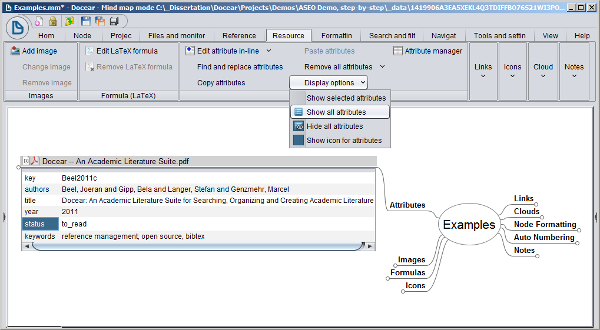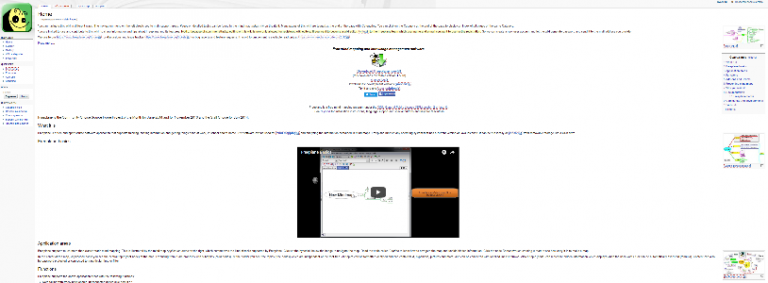


You can sync your library database files only or the totality of your files. You can also generate a time-line of references and highlight interesting articles with search filters. You can can have Saved searches that can automatically populate a collection based of a search pattern. It is good at managing various kind of file types, specially good at capturing online sources.
#Software like docear pdf
The pdf indexing requires a plug-in but you can find an easy way of installing it in the preferences. You can set up an account but it is not mandatory. This program is free and open-source, it works on Windows, Mac, Linux and online. One of its unique features is the ability to export and sync to a single bibtex file or separated files by collection or document. It is very good at managing an existing pdf collection. You only have to pay if you exceed th 5 GB sync limit, there are personal ($14.99 USD/month for unlimited) and team plans ($49 for 5 collaborator up to $249 USD for 50). It is free, but requires an account, even if you use it in your desktop, you have to log in. Mendeley works in Windows, Mac, Linux and iOS as well as a web version. Notice that the “little” How-to book (which is NOT the manual) has more than a hundred pages. A detailed list of features can be found here but to get into the real detail you have to check the manuals. Apart from the standard features, it does offer some additional features like generating sections in your bibliography or multiple bibliographies in a single file (you can have multiple documents to overcome this limitation in other software). It works on Windows, Mac and Ipad, it also offers a web version. You can also try it for 30 days or use the free online version (with a 2 GB limit for files). While this price tag may look expensive, consider that the storage capacity for files is unlimited. EndNoteĮndNote is a paid software, it cost $249 USD but student discounts (via a third-party retailer) are available. So let’s focus on the unique features of each one of them.
#Software like docear software

The code above resulted in the following table: Recommended Reference Manager # table: most recommended data %>% select ( Recommend ) %>% group_by ( Recommend ) %>% tally () %>% filter ( n > 1 ) %>% arrange ( desc ( n ))


 0 kommentar(er)
0 kommentar(er)
